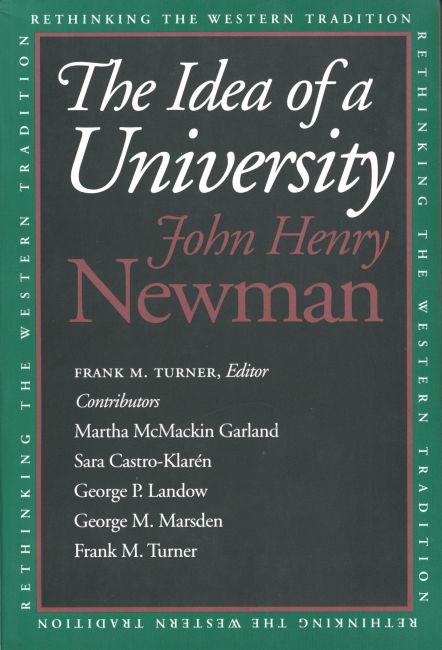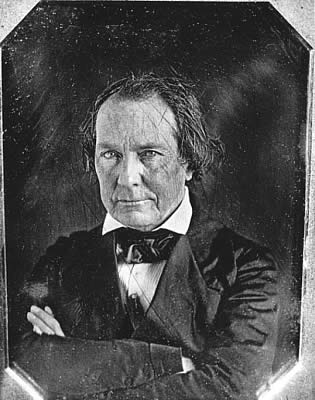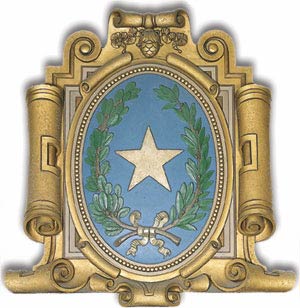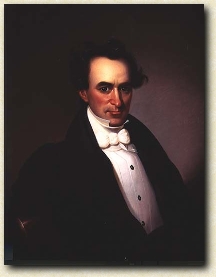>make sure to refresh this page every time you access
it 3/19/18

THE GOAL OF U.T.,THE FLAGSHIP UINIVERSITY OF THE SYSTEM, IS TO PRODUCE LEADERS







1. Why should becoming a leader be your primary goal at this university?
1.b. Leadershipis the essence, the living teaching, the self-perpetuating tradition, the genius loci, of the university, to use the words of John Henry Newman.In 1984, Peter Flawn, President of U.T. and Regents Professor of Higher Education Leadership, discussing the purpose of U.T. in his annual address to the faculty, said "In thinking about this issue, I reread John Henry Newman's The Idea of a University, a classic treatise familiar to all who are interested in higher education."


(Newman's idea of a university was based on his alma mater, Oxford, one of the primary sources of the leaders of the English-speaking peoples. It is no accident that its seal appears on the Main building:)

According to Newman, a university "will give birth to a living teaching, which in course of time will take the shape of a self-perpetuating tradition, or a genius loci, as it is sometimes called; which haunts the home where it has been born, and which imbues and forms, more or less, and one by one, every individual who is successively brought under its shadow."
This genius loci of U. T. is embodied in the official "Core Purpose of the University" -- "To transform lives for the benefit of society" -- and in its five core values: "Discovery, Freedom, Leadership, Individual Opportunity, and Responsibility." Obviously, "to transform lives for the benefit of society," leadership is essential.

2. How is leadership defined as a core value of this university? "Leadership" here is officially defined as "The will to excel with integrity and the spirit that nothing is impossible. 'A university both leads and is a catalyst for leadership. By its creation, expansion, and transmission of knowledge, a university leads society to beneficial changes. University faculty both demonstrate and teach leadership to new generations of students. The quality of a university's leadership helps to determine the quality of our culture. The University's challenge is to provide informed, ethical, compassionate, and respectful leadership'. Larry Temple, BBA '57; President, Ex-Students' Association 1997-1998."
3.Why are students of the University of Texas in particular expected to become leaders in society?



Let's take a look at the seal of the university. It features a Latin version of this statement of Mirabeau B. Lamar, second President of the Republic of Texas: "The cultivated mind is the guardian genius of democracy, and, while guided and controlled by virtue, the noblest attribute of man. It is the only dictator that freemen acknowledge, and the only security which freemen desire." This statement appears in the Hall of Noble Words in the Main building, also known as the Tower:

4. The goal of a "cultivated mind ... guided and controlled by virtue" reminds us that composing a self, building character, is the traditional focus of a college education.
4a. What exactly is meant by that? Newman wrote:
When the intellect has once been properly trained and formed to have a connected view or grasp of things [unity], it will display its powers with more or less effect according to its particular quality and capacity in the individual. In the case of most men [and women] it makes itself felt in the good sense, sobriety of thought, reasonableness, candour, self-command, and steadiness of view, which characterize it. In some it will have developed habits of business, power of influencing others, and sagacity. In others it will elicit the talent of philosophical speculation, and lead the mind forward to eminence in this or that intellectual department. In all it will be a faculty of entering with comparative ease into any subject of thought, and of taking up with aptitude any science or profession. [diversity]... He profits by an intellectual tradition, which is independent of particular teachers, which guides him in his choice of subjects, and duly interprets for him those which he chooses. He apprehends the great outlines of knowledge, the principles on which it rests, the scale of its parts, its lights and its shades, its great points and its little, as he otherwise cannot apprehend them. Hence it is that his education is called "Liberal." A habit of mind is formed which lasts through life, of which the attributes are, freedom, equitableness, calmness, moderation, and wisdom.... Moreover, such knowledge is not a mere extrinsic or accidental advantage, which is ours today and another's tomorrow, which may be got up from a book, and easily forgotten again, which we can command or communicate at our pleasure, which we can borrow for the occasion, carry about in our hand, and take into the market; it is an acquired illumination, it is a habit, a personal possession, and an inward endowment.
With this definition of composing a self, of permanent character change, as the goal of a university education, let us return to our question, Why are students of the University of Texas in particular expected to become leaders in society? And let us return to the Hall of Noble Words in the Main building. Lamar's statement appears on the ceiling next to this one:

This statement is by the first President of the Republic of Texas, Sam Houston.


4b. "The benefits of education and of useful knowledge, generally diffused through a community, are essential to the preservation of a free government." Houston's distinction between education and useful knowledge was a common one in the nineteenth century. Newman stresses that "education is a higher word; it implies an action upon our mental nature, and the formation of a character; it is something individual and permanent, and is commonly spoken of in connexion with. . . virtue." Newman elucidates not only Houston's statement, but also Lamar's stress on a "cultivated mind ... guided and controlled by virtue."

In other words, when you matriculate at U. T., the State of Texas is investing in your education because your leadership is essential to maintaining democracy in this state and nation.

5. Thus, here at U.T. you are asked to become conscious of your life as a journey motivated by a higher purpose, a pilgrimage, and of the truth[s] that you seek and/or have found that will set you and others free.

As the image of the scallop shell below the motto on the tower reminds us, particularly important are pilgrimage goals that can endow you with a compelling vision that inspires others to follow you. Hence especially valuable are truths that tap into that which is greater than the self, truths that enable you to make a contribution to society that can be thought of as your legacy when you are gone.
Consider the student at the university looking back on his or her freshman year. As Newman says, "when he is leaving for the University, he is mainly the creature of foreign influences and circumstances, and made up of accidents, homogeneous or not, as the case may be." Then, if she or is a good student, she will have experienced at least one "sensation which perhaps he never had before. He has a feeling not in addition to or increase of former feelings, but of something different in its nature. He will perhaps be borne forward, and find for a time that he has lost his bearings. He has made a certain progress, and he has a consciousness of mental enlargement; he does not stand where he did, he has a new centre, and a range of thoughts to which he was before a stranger... We seem to have new faculties, or a new exercise for our faculties, by this addition to our knowledge; like a prisoner, who, having been accustomed to wear manacles or fetters, suddenly finds his arms and legs free:

But now for these students, Newman continues, "every event has a meaning; they have their own estimate of whatever happens to them; they are mindful of times and seasons, and compare the present with the past; and the world, no longer dull, monotonous, unprofitable, and hopeless, is a various and complicated drama, with parts and an object, and an awful moral."

This is the key to your leadership training at the University of Texas: to transcend the accidents of being born in a particular place and time, and to mold your own character, to find your own truths that set you free.
As you think about this, ultimately you will be hammering your self into unity. You will be composing yourself. The word "compose" connects "pose," that is "to place," to "con" ("together"), and its root meaning is thus "to place together," "To put together (parts or elements) so as to make up a whole" (Oxford English Dictionary). As Newman puts it, your mind takes a "connected view of old and new, past and present, far and near, and ... has an insight into the influence of all these one on another; without which there is no whole, and no centre. It possesses the knowledge, not only of things, but also of their mutual and true relations." Such a mind "makes every thing in some sort lead to every thing else; it would communicate the image of the whole to every separate portion, till that whole becomes in imagination like a spirit, every where pervading and penetrating its component parts, and giving them one definite meaning. Just as our bodily organs, when mentioned, recall their function in the body, ... so, in the mind of the [student], the elements of the physical and moral world, sciences, arts, pursuits, ranks, offices, events, opinions, individualities, are all viewed as one, with correlative functions, and as gradually by successive combinations converging, one and all, to the true centre."
What is your true center? The answer should lead you to your leadership vision embodying the "living teaching" of your university, tapping into its "self-perpetuating tradition," embodying the genius loci of the University of Texas at Austin. 
‘One day when I was twenty-three or twenty-four this sentence seemed to form in my head, without my willing it, much as sentences form when we are half-asleep, ‘Hammer your thoughts into unity’. For days I could think of nothing else and for years I tested all I did by that sentence [...]” William Butler Yeats, winner of the Nobel Prize for Literature (cited in Frank Tuohy, Yeats, 1976, p.51)
"A
university both leads and is a catalyst for leadership. ... The university's
challenge is to provide informed, ethical, compassionate and respectful leadership."
LEADING
CLASS DISCUSSION. You can earn up to forty points for doing so.*
However, if you are assigned to lead class discussion and do not warn
the instructor at least twelve hours before class that you can not do
so you will receive negative thirty points. These negative points will
remain unless you do lead a class discussion. You may not have any
chances to do so, however. If, less than twelve hours before class, you
fomd that you can not meet the requirements, your only alternative is
to find a classmate who will do so by meeting the basic requirements.
Basic Requirements for Leading Class Discussion.
1. You must post a valid entry in the relevant
Blog on time. "No excuses,
no exceptions, no rescues." This is a test of your priorities and capacity
for time management. A valid entry is one that meets the basic requirements
for quotations and images. Failure to meet this requirement also signals the
instructor in time to prepare to lead discussion in your place.
2. AT SOME POINT DECIDE IF YOU WANT HE INSTRUCTOR TO DO ANYTHING MORE THAN ADMINISTER THE QUIZ AND TAKE THE ROLL. LET HIM KNOW IF YOU WANT TO DO THE GUIDED IMAGERY OR MEDITATION. LET HIM KNOW IF YOU WANT TO DO BEST AND WORST (WATCH THE CLOCK), ETC.
3. The leader identifies and organizes key
themes and dialectics in the posted blog entries and comments in an outline
or chart or whatever to show that he has read all of the entries received
by midnight or so. Here is a example of such an outline.
4. The leader then prepares his/her plan for the discussion and emails to the instructor the
outline of the entries and the lesson plan (often a combination of a timed lesson plan such as this one and experiential learning, KAHOOT or some other phone app. game, or a powerpoint presentation) by 7 A. M. on the day of the class discussion. The
lesson plan must include assignent of how many minutes are alotted
for each activity, based on the assumption that the leader will
have only thirty minutes total for all activities. The leader is advised to begin any experiential activity as soon as possible and leave the discussion for last.
5. The leader then explains how any experiential activity relates to the
day's topics and proceeds to the activity. EXPERIENTIAL LEARNING is more likely to earn the leader the maximum
number of points.
6. After that or in the absence
of any experiential activity the leader guides the class in
an organized DEBATE or discussion of the topics and readings assigned for that
day.** In preparing for class the leader focuses on how the blog entries and readings relate to
each other and to the themes of the course throughout the semester .
The discussion leader's goals are to (1) facilitate a productive and
comprehensive discussion involving as many students as possible; (2)
keep the discussion focused on assigned readings; (3) "Only Connect"
the readings to each other and to our other themes for this semester,
and (4) nurture emotional literacy.
7. THE LEADER THEN PREPARES LIVELY DEBATE TOPICS FOR THE DISCUSSION IN THE FORM OF "PROPOSITIONS" WHICH INVITE A POSITIVE OR NEGATIVE RESPONSE. THESE PROPOSITIONS ARE PRESENTED ONE AT A TIME FOR DISCUSSION. IF AND ONLY IF ALL THE TOPICS HAVE BEEN DISCUSSED AND THE DISCUSSIONS SEEMS TO STALL, THEN THE LEADER CAN PRESENT QUOTATIONS FROM THE BLOGS TO HELP STUDENTS REMEMBER WHAT THEY WROTE AND PROVIDE MORE INFORMATION FOR THE CLASS DISCUSSION.
IN OTHER WORDS IF PREPARING A SLIDE SHOW FIRST THERE WOULD BE INFO ABOUT THE EXPERIENTIAL ACTIVITY, THEN THE SERIES OF PROPOSITIONS WITH NAMES OF STUDENTS ASSIGNED TO EACH SIDE (ON THE BASIS OF THEIR BLOGS), AND ONLY AT THE END A SERIES OF QUOTATIONS FROM THE BLOGS TO BE USED IF NEEDED TO STIMULATE DISCUSSION. IN SHORT TRY TO AVOID REGURGITATING BLOGS FOR ITS OWN SAKE.
8. Concerning
the latter, good questions focus on feelings mentioned in the student
blogs. For example, in a blog post on the novel We Are All Beside Ourselves, a student wrote "In Rosemary's case, since she feels extremely excluded from all her peers, she feels that fear of loneliness much stronger than the average person her age." A good question is "Have you every experienced loneliness? What were the circumstances? How did you deal with it?"
Even when emotions are not mentioned in the blog post, try to choose
what are known as "reader response" questions. For example, "[Rosemary]
notes that people sometimes alter their memories." Good questions are "Do
we glorify the past? Can you think of examples when you or
someone you know has been guilty of this? Is it a good or bad
thing?" Another example is "Lowell had a clear cause; animal rights advocacy. Is there a cause for which you would drop everything?"
9.When the leader calls on someone
to speak, the leader may ask, (1) "what quote
do you have for us to consider?" (2) Then the leader asks for the page
and location on the page of the quote. (3) Then the leader asks for a summary
of the context of the quote. (In both the initial blog entry
and in the ensuing class discussion it is crucial to demonstrate close reading,
especially getting the context of quotes correct: otherwise the quotes do
not count and the speaker may make egregious errors.)
10.The
leader should avoid abstractions, especially any ending in "ism." If a
student introduces one of them the leader is expected to ask for
definitions and examples immediately. Examples of key abstractions are capitalism, mercantilism, socialism, God, the good,. (Students who introduce vague abstractions should be prepared to supply these
definitions and examples.) Why?
ABSTRACTIONS AS OBSTACLES TO COMMUNICATION: Most importantly perhaps, abstractions deceive us into thinking
we are communicating. Two people can have a long, long conversation about
"God" or "the Good" or "the Beautiful" and think they are communicating
but in reality they each have very different definitions, ideas, and experiences
of "God" or "the
Good" or "the Beautiful." Unless these differences are acknowledged
they are deceiving themselves about the quality of their communication. More
than likely rather than connecting, they are like two trains passing in the
night, each with only a fleeting glimpse of what is going on on the other
train.
Hence the instructions
for leading class discussion:
"When vague abstractions are introduced, the leader is expected to ask
for definitions and examples immediately. (Students who introduce vague
abstractions should be prepared to supply these definitions and
examples.) Why? As perhaps the greatest writer of English prose put it,
"Without a firm hold on things, we shall waste ourselves in vague
speculations'" (John Henry Newman). His arguments have been supported
again and again by current research. For example, "most methods of
analysis operate at so high a level of abstraction that the basic data
of the meaning experience
is slighted and/or obscured" (Fish 30). Indeed it may be agured
that "abstraction, which masks differences of class, culture,
race, and gender, is not a necessary concomitant of complex thought"
(Roemer 920). Gender certainly makes a difference: as feminists have
pointed out, what we learn can not always be easily generalized and
"speaking in abstractions sometimes permits us to accept what we might
not admit to on a personal level" (J. B. Miller, 55, 4). See Abstractions
11. The leader will try to include
everyone in the class. After those with their hands up have all spoken once,
instead of calling on them again, the leader will call upon one of those
who have not raised their hands and ask that person to summarize the discussion
so far. (They will lose points if they can not do so.) The leader can then
call on more of those who have not participated or alternate between them
and those who have already spoken once or ........
12. If the leader
wants to retain the option of going outside for class, s/he needs to have
a readable printout of the all the blog entries as well as outline and discussion plan to take outside (and/or tested
wireless computer access in the place s/he wants to hold class).
*GRADES. The leader usually learns thirty points
or so for following the instructions above. If the the leader uses PowerPoint
or some other multimedia to guide the discussion the leader usually earns about
thirty-five points. If the leader users experiential learning s/he usually
earns forty or more points. The teacher will act as grader for the rest or the students
also, and, if need be, co-facilitator of the discussion process, awarding points
to those who demonstrate detailed knowledge of the other students' contributions
to the blog and/or make good connections backed
up by citations from our assigned texts.
---------------------------------------------------------------------------
Undergraduates Too Often Shortchanged in the
Past.....
The failure of research universities seems
most serious in conferring degrees upon inarticulate students. Every university
graduate should understand that no idea is fully formed until it can be communicated,
and that the organization required for writing and speaking is part of the
thought process that enables one to understand material fully....
Many students graduate having accumulated whatever number of
courses is
required, but still lacking a coherent body of knowledge or any inkling as
to how one sort of information might relate to others. And all too often they
graduate without knowing how to think logically, write clearly, orspeak
coherently........
AN ACADEMIC BILL OF
RIGHTS includestraining in
the skills necessary for oral and written communication at a level that
will serve the student both within the university and in postgraduate professional
and personal life.
recommendations:[1] Beginning
with the freshman year, students must learn how to convey
the results of their work effectively both orally and in writing. [2]
Inquiry-based learning, collaborative experience, writing and speaking
expectations need to characterize the whole of a research university
education......the changes need to include greater expectations of
writing and speaking....
[resulting in ] graduates who are proficient in both written and oral communication.

























